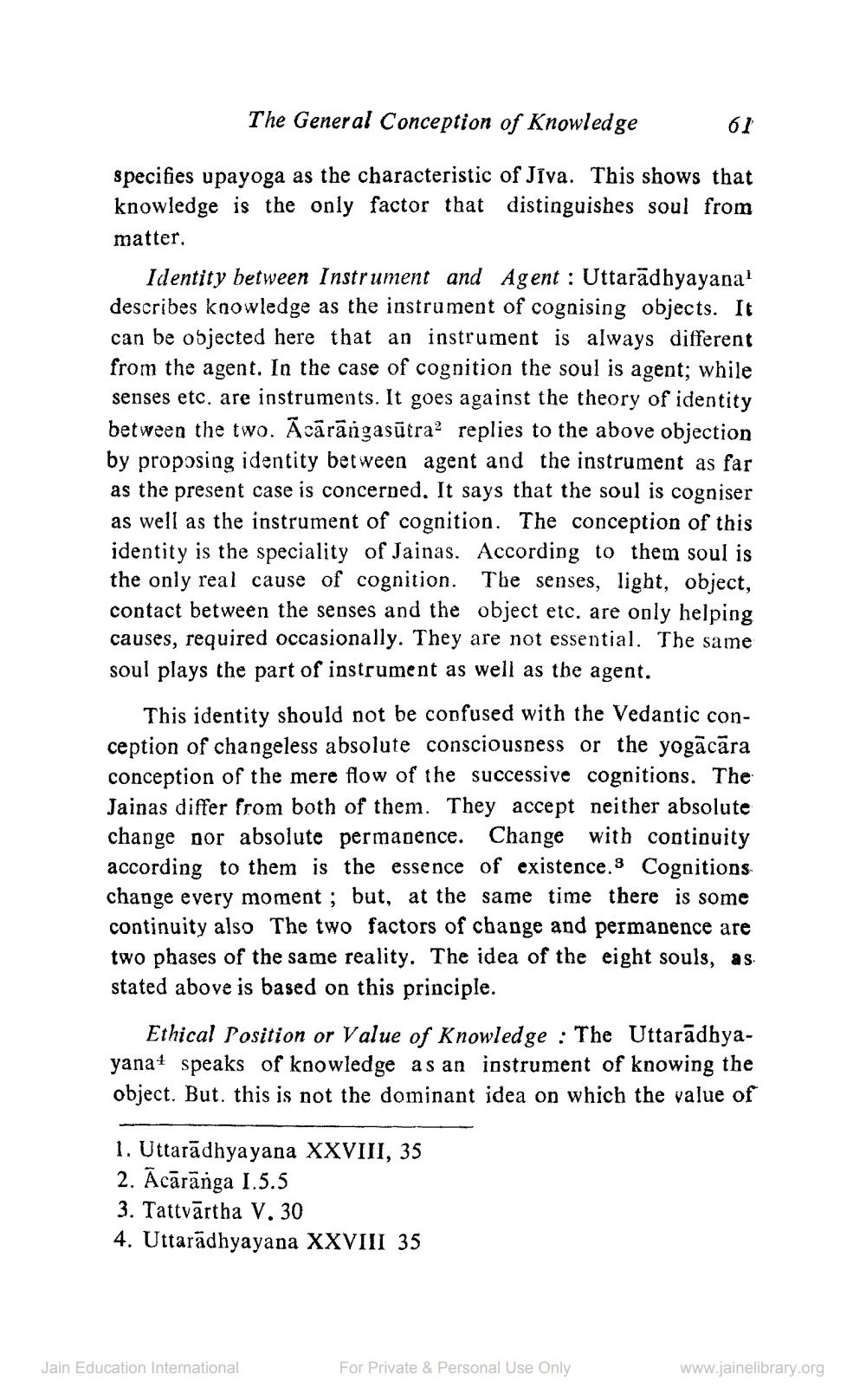________________
61
The General Conception of Knowledge
specifies upayoga as the characteristic of JIva. This shows that knowledge is the only factor that distinguishes soul from
matter.
Identity between Instrument and Agent: Uttaradhyayana1 describes knowledge as the instrument of cognising objects. It can be objected here that an instrument is always different from the agent. In the case of cognition the soul is agent; while senses etc. are instruments. It goes against the theory of identity between the two. Acārāngasūtra2 replies to the above objection by proposing identity between agent and the instrument as far as the present case is concerned. It says that the soul is cogniser as well as the instrument of cognition. The conception of this identity is the speciality of Jainas. According to them soul is the only real cause of cognition. The senses, light, object, contact between the senses and the object etc. are only helping causes, required occasionally. They are not essential. The same soul plays the part of instrument as well as the agent.
This identity should not be confused with the Vedantic conception of changeless absolute consciousness or the yogacara conception of the mere flow of the successive cognitions. The Jainas differ from both of them. They accept neither absolute change nor absolute permanence. Change with continuity according to them is the essence of existence. Cognitions change every moment; but, at the same time there is some continuity also The two factors of change and permanence are two phases of the same reality. The idea of the eight souls, as stated above is based on this principle.
Ethical Position or Value of Knowledge: The Uttaradhyayana speaks of knowledge as an instrument of knowing the object. But. this is not the dominant idea on which the value of
1. Uttaradhyayana XXVIII, 35 2. Acaranga 1.5.5
3. Tattvartha V. 30
4. Uttaradhyayana XXVIII 35
Jain Education International
For Private & Personal Use Only
www.jainelibrary.org




